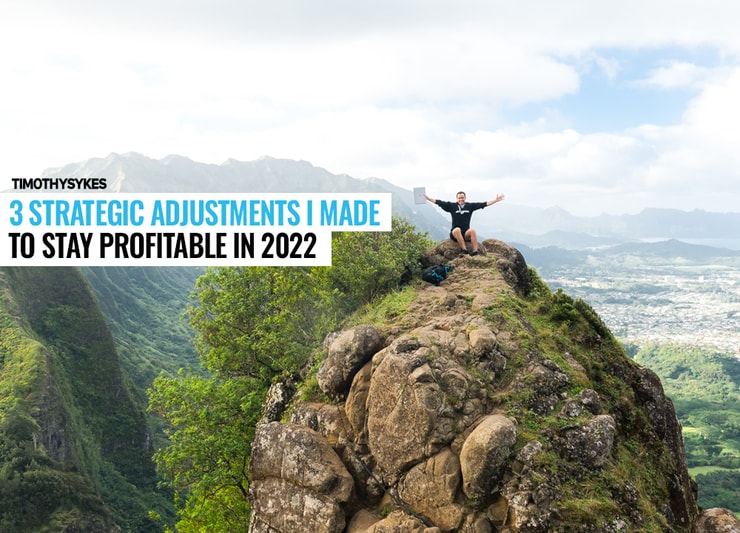There’s one thing top traders always do better than the rest…
Adaptation
You see, market conditions are constantly changing … and if you’re moving with them, then you’ll get REKT like most traders have this year.
I’m up around $85K in trading profits in 2022, which is nearly 10x less than I had last year this time.
Now, that might sound frustrating to some folks. But that’s not how I think at all.
You see, there are two types of markets out there: one for learning and one for earning.
And right now, it’s all about acquiring the skill set to be a badass trader. It’s perfect because there are fewer opportunities in the market right now.
Why is that beneficial?
Because it’s easier to spot good opportunities and study them. This is the time to be learning.
That’s why I’m about to share with you the three best strategies I’ve utilized to stay profitable when most traders have been losing their shirts.
But first, let me tell you why it’s so critical you start preparing right now.
In 2019 when the markets were slow, I was working on my setups, mastering the best patterns, and preparing myself for when things picked up. That year, I made $125,000 in trading profits.
But when 2020 and 2021 rolled around, I had the skills, discipline, and risk management mindset to clear seven figures in trading profits.
And while most of the get-rich-fast and HODL traders gave up their gains this year, I continue to build and stack my chips higher.
Table of Contents
- 1 Here Are 3 Strategies I’ve Used To Stay Profitable In 2022
- 2 Smaller Position Sizing: Good traders know to push their limits when opportunities are there and to lay off the gas when they’re not. The markets have been choppy, and although we’re starting to see some stronger trend days, I’d rather play it small until there’s further confirmation.
- 3 Set Realistic Goals: Traders need volatility and liquidity to make quick profits. If opportunities are scarce then it’ll be harder to make the big money. That’s why it’s so important to set realistic goals.
- 4 Adjust Your Trade Plan: In this market, I’ve been taking profits fast and cutting losses even quicker. Why? Because that’s what the market is giving me right now. Holding onto losers can be a real mind f*ck. Just stick to my number #1 rule: cut losses quickly.
Here Are 3 Strategies I’ve Used To Stay Profitable In 2022
-
-
Smaller Position Sizing: Good traders know to push their limits when opportunities are there and to lay off the gas when they’re not. The markets have been choppy, and although we’re starting to see some stronger trend days, I’d rather play it small until there’s further confirmation.
-
Set Realistic Goals: Traders need volatility and liquidity to make quick profits. If opportunities are scarce then it’ll be harder to make the big money. That’s why it’s so important to set realistic goals.
-
Adjust Your Trade Plan: In this market, I’ve been taking profits fast and cutting losses even quicker. Why? Because that’s what the market is giving me right now. Holding onto losers can be a real mind f*ck. Just stick to my number #1 rule: cut losses quickly.
-
The truth is, trading’s not scary if you trade scared. If you’re able to cut losses quickly, you’ll have low stress and be exposed to less risk.
You’re in control. And although the doom and gloom chatter is running high. I’m very bullish on anyone who comes into this market with the right attitude and mindset.
If you want to learn more about my latest coaching program…
You’ll be shocked at how a few simple adjustments can change everything. I’ve helped over 25 of my students go on to become millionaire traders.
But I’m hungry for more.
Take a second to watch this video, to see if I can help.
— Tim
*Results not typical. Timothy Sykes teaches skills others have used to make money. Most who receive free or paid content will make little or no money. Most traders lose money. We do not guarantee any outcome regarding your earnings or income as the factors that impact such results are numerous and uncontrollable. You understand and agree you will consider the important risk factors in deciding to purchase any of our products or services. Past performance in the market is not indicative of future results.


Leave a reply